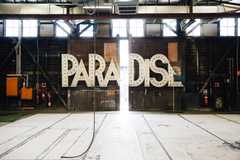Report / Sydney
Stage right
As artistic director at the Sydney Theatre Company, playwright Andrew Upton has helped pen a star part for the city’s iconic cultural institution. He talks to Monocle about what makes Sydney so special and why telling stories matters.
The Wharf, a heritage-listed pier in the shadow of the Sydney Harbour Bridge, is home to the Sydney Theatre Company (STC), one of the city’s iconic cultural institutions. Artistic director and ceo Andrew Upton rides his bike to work every day and his office – comprising two sofas, an armchair, a coffee table, several bookcases but no desk – offers glimpses of the sparkling harbour.
As a boy growing up in suburban Sydney, Upton and family would make the 30-minute drive from their home in leafy, middle-class Eastwood across the Harbour Bridge to The Wharf. “My dad was a subscriber; he’d bring us to see shows here. It was so exciting,” he says. “Back then it was a bit gritty down here, it was dark and interesting and not at all suburban. Working in this building was something I aspired to from a very young age.”
Upton later studied arts at the University of Sydney before moving to Melbourne, where he completed a degree in writing and directing. His early career began in film, including time in the editing suite, ahead of writing and producing plays at Sydney’s Belvoir Street Theatre and translating classics such as Chekhov, Beckett and Ibsen; the craft for which he is most celebrated. That and the task of running Australia’s most prestigious theatre company alongside his Melbourne-born wife, actress Cate Blanchett.
The couple have resided in Sydney permanently since their appointment as co-artistic directors and joint CEOs in 2007. Originally appointed for a five-year term, Upton’s reign was extended for a further three years while, solo, Blanchett has pursued film projects.
Together they are credited with having raised the profile of the company among the Sydney public and are appreciated by the city’s theatre audience for programming a broad and often international range of work. Among these are original plays and adaptations by Upton and his friends, collaborators and fellow playwrights and directors, such as Sam Shepard and the late Philip Seymour Hoffman.
In the eight years that Upton has been at the helm, the STC has posted a profit most years (almost unheard of for an Australian performing-arts company). The good box office is in part due to the dynamic programming but also the careful nurturing of relationships with federal, state and local governments (grants contribute 8 per cent to the company’s bottom line). It is also due to strong sponsorship commitments from the business community: Audi, Lend Lease and Suncorp are major sponsors, with the deals secured by Upton and his staff. During his tenure (which ends in December) the company has toured works internationally, oddly – but successfully – taking Upton’s adaptation of Hedda Gabler to New York and Waiting for Godot to London.
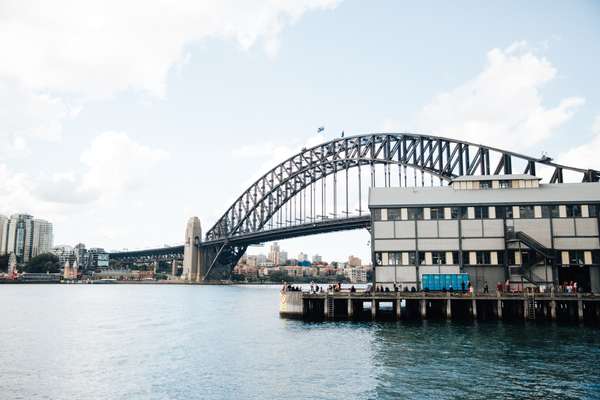
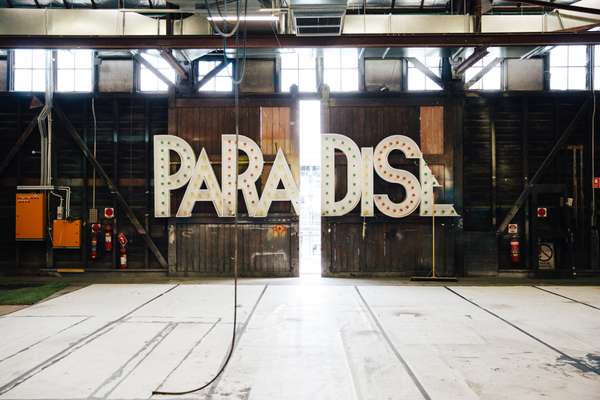
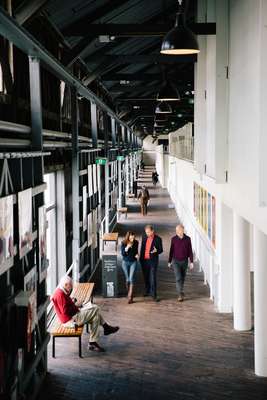
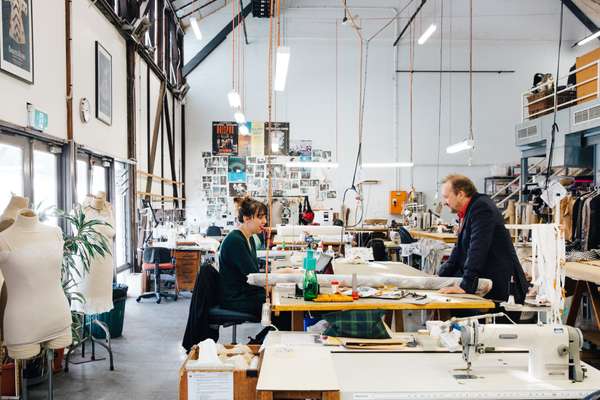
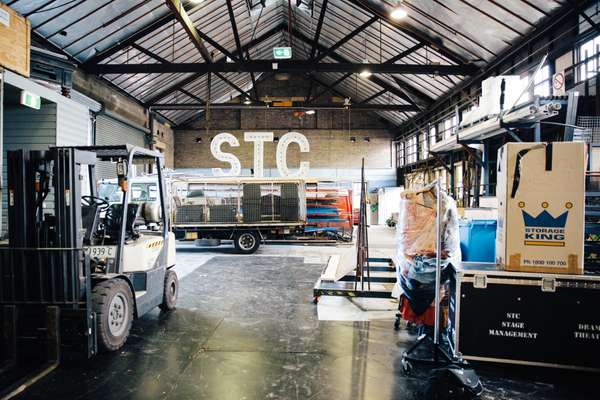
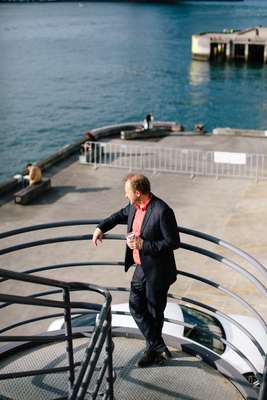

In Sydney, Upton is regarded as an unassuming, down-to-earth intellectual, and the lesser-known half of one of the city’s most recognisable and glamorous couples. In cultural circles he is highly respected. He enjoys a reputation as an accessible, high-energy and good-natured boss.
In civic circles he is considered something of a visionary, having instituted the “Greening The Wharf” project in partnership with the University of New South Wales. It’s a long-term sustainability initiative that is transforming one of the New South Wales state government’s most conspicuous public buildings.
“The greening was one of the first initiatives we undertook when we were given the jobs,” says Upton. “You can live a modern, sophisticated life and not have a major impact on the environment. That was a message we were very keen to get across to Sydneysiders. There was a lot of scaremongering in Australia when we started the project eight years ago, a notion that being green would cost individuals vast sums of money and deprive them of comfort. It was important to us to be an example of the exact opposite.”
The STC has 18 recycling streams in place, including water, timber (from scenic production), paper and general waste. Electricity is fed back to the grid and rainwater is collected in five tanks installed on The Wharf’s pitched corrugated iron roof, alongside solar panels. Upton has also been awarded for his work with local schools. He initiated School Drama, an in-classroom education programme developed in conjunction with University of Sydney that has introduced thousands of the city’s primary school children to the stirring world of theatre.
“The school programme is about our place as a theatre company in the ecology of the city,” says Upton. “We wanted to implement a course that would have a long-term impact on local kids. Not just on literacy but to give them a sense that theatre is a useful, fun, powerful mode for telling stories.”
Upton’s energy and positivity are palpable. He is an enthusiastic advocate of his hometown, the city in which he and his wife have chosen to raise their four children. “It is a complex and complicated city but it is gentle,” he says.
“Sydney was a fantastic place to grow up,” he adds. “But the urge to reach out into the world has always been great for me, so I’ve lived and worked overseas for long periods. I think there is that urge inside all Australians; there is a great sense that other things are happening in other parts of the world and that we need to get out there and experience them. We’re not self-absorbed.”
He believes Sydney has matured recently. “I feel like this town has finally come of age. It was quite dull when I grew up really but in the last decade or so particularly, it has become incredibly diverse and sophisticated. I feel like it is big and suddenly you can feel that it is big. Despite the sprawl, which is a lot like Los Angeles, it’s a city of villages, a series of small communities.”
Size, sophistication and community have helped bolster a vibrant arts scene, says Upton. “There was certainly enough cultural and creative substance here to pull both Cate and I back after nine years of living in London. If there is any kind of problem in Sydney, it’s that it is too easy to do nothing.
“One of my Sydney Theatre Company colleagues once said to me, ‘Coming to Sydney for the theatre is a bit like going to Berlin for the surf,’ and he was utterly right.” That said, Upton does think the quality of the arts in Sydney is good. “Creatively, per capita, we are a very productive city. As the city has grown, an appreciation for the arts has grown also. As a company we fit well into Sydney. I like the way lord mayor Clover Moore runs the city: the council’s mantra that this is a ‘City of Villages’ encourages people to think about Sydney as a layered community, not a flat metropolis that just does business.
“There are a diverse bunch of people who call it home, who have been thrown together from all over the world and have to figure out how to live together. That makes it a pretty interesting place to be.”
Would he live in any other city in Australia? “Nah, Cate’s from Melbourne and even she knows it’s better.”

